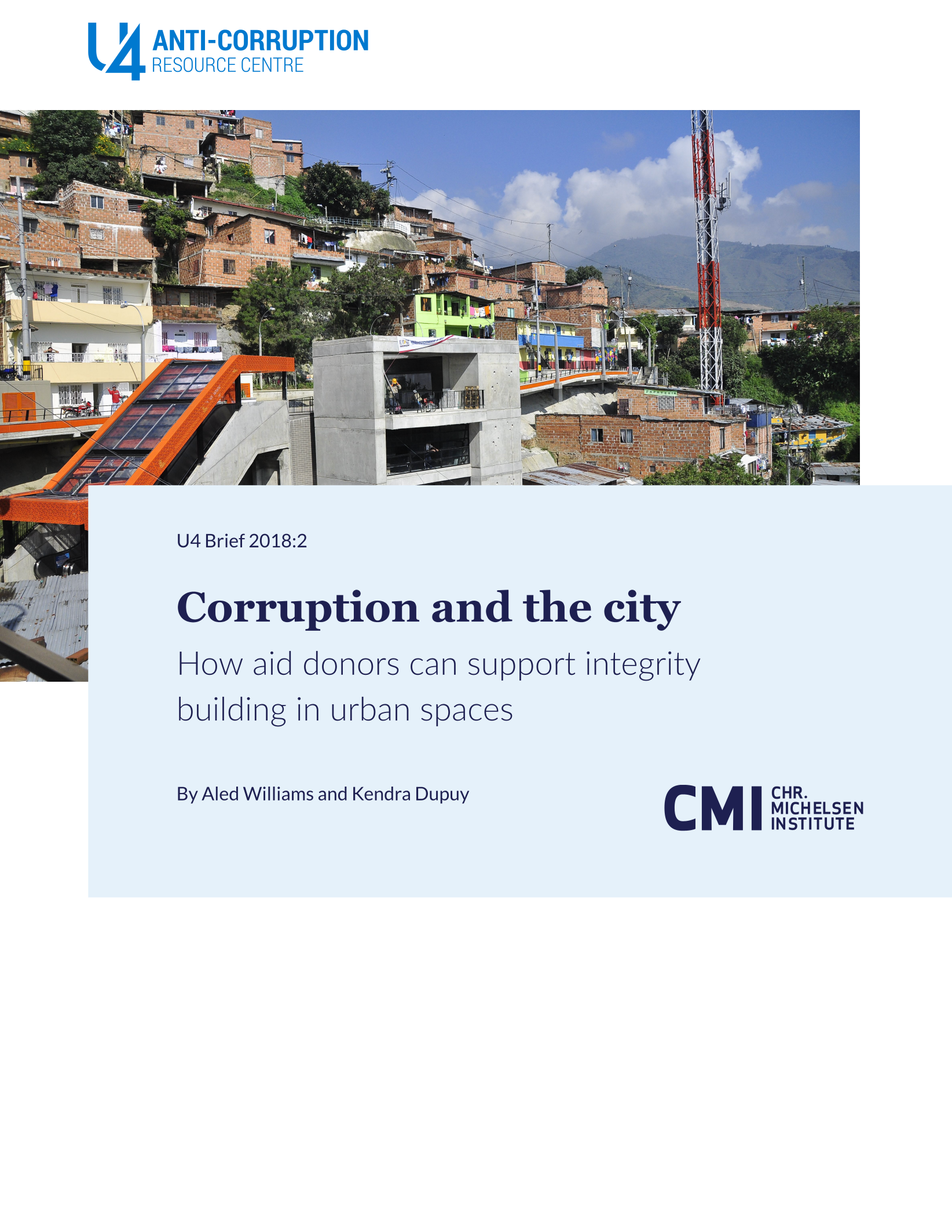Main points
- Corruption is undermining cities' efforts to achieve the Sustainable Development Goals. Its effects range from increasing socio-economic inequality to harming the environment.
- City-focused corruption research is needed to inform emerging policy and practice.
- Making information on municipal public finances available to citizens can help reduce knowledge gaps.
- Improving the transparency of municipal public service provision could prevent forms of corruption linked to city services.
- Strengthening citizen engagement in city management may be part of the solution.
- Donors should review their portfolios to consider which urban initiatives could benefit from an enhanced anti-corruption effectiveness lens.


